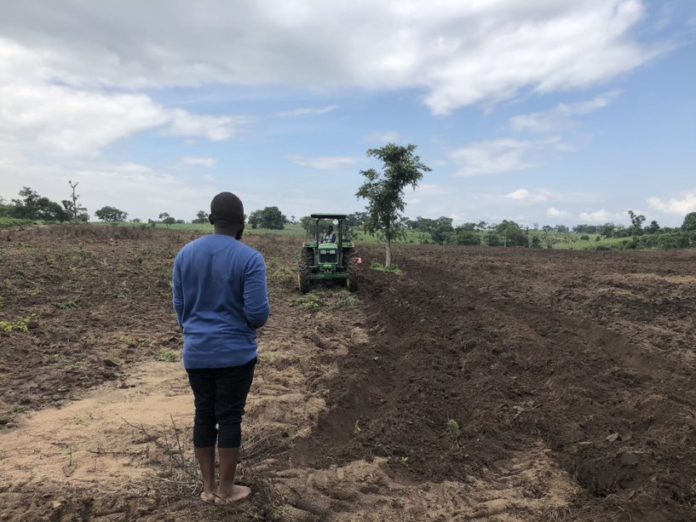
Nnaemeka Ikegwuonu, founder and CEO of ColdHubs, a Nigerian business that provides solar-powered, walk-in coolers for smallholder vegetable farmers and Jehiel Oliver, founder and CEO of Hello Tractor, a Kenyan company that has become known across Africa as the “Uber of tractors,” were selected today as the winners of the inaugural US$1.5 million Heifer International AYuTe Africa Challenge.
The winners, known as the 2021 AYuTe Africa Champions and chosen from an impressive field of young agritech innovators from across the continent, were announced today at the 2021 African Green Revolution Forum (AGRF) Summit.
“Across Africa today, young, creative professionals are deploying tech innovations that are reimagining farming and food production,” said Adesuwa Ifedi, senior vice president of Africa Programs at Heifer International. “We want to do our part to help companies like Hello Tractor and ColdHubs as they provide Africa’s smallholder farmers with much-needed products and services to develop sustainable, profitable business.”
As winners of the AYuTe Africa Challenge, the companies will receive a sizeable monetary investment—a total of US$1.5 million in grants—along with ongoing support from a team of expert advisers—accomplished business veterans—to help them translate their funding into an aggressive expansion strategy. This is part of Heifer International’s efforts to support young entrepreneurs developing affordable tech innovations to scale their businesses. Doing so ensures greater access to services that enable African farmers to overcome long-standing challenges while encouraging a new generation to pursue opportunities in agriculture.
Hello Tractor provides technology that allows farmers to connect with local tractor owners on the Hello Tractor marketplace and book a machine for as long as they need it. ColdHubs owns and operates dozens of compact, walk-in, solar-powered coolers at rural produce markets in central Nigeria. The transportable, stand-alone units give local farmers a way of keeping their beans, peppers, tomatoes and more fresh for days or weeks, reducing waste.
Market-tested, farmer-ready innovations poised for impact
While many agritech competitions focus on early-stage companies and ideas, the AYuTe Africa Challenge seeks innovations that are market-tested, farmer-ready and poised to provide an impact that will cascade across the food systems of multiple countries. Both Hello Tractor and ColdHubs meet those criteria.
“Our ambition is for Hello Tractor to be available across Africa and we’re excited that winning the AYuTe Africa Challenge will help make that happen,” said Jehiel Oliver, Hello Tractor founder and CEO. “The entire continent of Africa sees about 15,000 new tractors every year while India alone sees about one million. Our farmers clearly need a lot more tractors and Hello Tractor offers a proven pathway for increasing access to this important technology.”
“With support from Heifer and the AYuTe Africa Challenge, I think in five years we can grow from 50 to about 5,000 ColdHubs across West Africa and create new income opportunities for smallholder producers,” said Nnaemeka Ikegwuonu, CEO of ColdHubs. “Too many African farmers do not get the income they deserve because they have no way of keeping their produce fresh, forcing them to sell it soon after harvest. ColdHubs offers an affordable, pay-as-you go refrigeration option available right in the middle of local markets.”
Young agritech visionaries bring new energy to African agriculture
Heifer International conceived the idea for the AYuTe Africa Challenge (AYuTe stands for Agriculture, Youth and Technology) based on four decades of work as a trusted partner of African farmers—and seeing first-hand the stark difference between local farms that have access to new technologies and those that do not.
“Ikegwuonu and Oliver are examples of young agritech innovators who can help change the negative narrative surrounding farming in Africa—showing how an occupation many young Africans associate with hardship can be profitable, productive, stimulating and rewarding,” said Ifedi.
A recent report by Heifer International also pointed to the need for more investments to encourage African youth turning away from agriculture to reconsider opportunities in the sector—especially given the need to generate jobs and repair food systems battered by the pandemic.
“The quality of the competition sends a strong signal that the African agriculture sector contains a wealth of opportunities—as many or more than any other sector,” said Ifedi. “Young entrepreneurs across Africa understand the farming struggles of their parent’s generation and have seen how this has discouraged the people around them from pursuing careers in the agriculture sector. But they also see a pathway through which their innovative products and services can transform farming into a promising future for their generation.”







